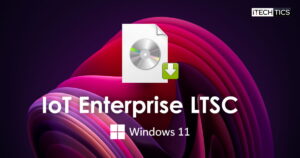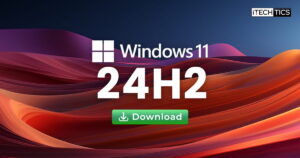Microsoft assigns codenames to its operating systems, like many other OS manufacturers. This is primarily done because, at the time of developing these projects, the final version, or the final name of the product is yet to be decided. Therefore, whilst they’re still in production, the developers use the codenames for the products to identify them.
Microsoft does not only assign codenames to the Windows operating system versions but also to other products, such as .NET releases, SQL Servers, etc.
While some prefer using the finalized names of the products, others prefer using the operating system codenames. Codenames eliminate the error of misunderstanding and often refer to exact product descriptions. For example, with the Windows OS, a codename illustrates an exact build of the operating system, eliminating any confusion.
This post lists the codenames Microsoft used or uses for the Windows operating system.
Table of Contents
Microsoft’s naming strategy for Windows
Microsoft has shifted a few times from its codename strategies. Earlier Windows versions used simple and random names, which then shifted to theme-based codenames, such as weather or astronomical phenomena. This then changed to aspirational names, such as “Redstone,” which was used for Windows 10 versions.
When Windows 11 was launched, Microsoft again changed its naming strategy and used names for valleys as codenames. The theory behind the reasoning is still unknown.
That said, not all Windows releases need to have a codename – some are without a codename, or even if Microsoft assigned one to them, they did not catch on.
Codenames for Windows OS

| Windows Version | Codename |
| Windows 1.01 | Interface Manager |
| Windows 1.02 | — |
| Windows 1.03 | — |
| Windows 1.04 | — |
| Windows 2.01 | — |
| Windows 2.03 | — |
| Windows 2.1 | — |
| Windows 2.11 | — |
| Windows 3.0 | — |
| Windows 3.1 | — |
| Sparta | |
| Windows NT 3.1 | Razzle |
| Windows 3.11 | — |
| Snowball | |
| Windows 3.2 | — |
| Windows NT 3.5 | Daytona |
| Windows NT 3.5.1 | |
| Windows 95 | Chicago |
| Windows NT 4.0 | Shell Update Release |
| Windows 98 | Memphis |
| Windows 98 Second Edition | — |
| Windows 2000 | Windows NT 5.0 |
| Windows Me | Millennium |
| Windows XP | Whistler |
| Freestyle | |
| Harmony | |
| Symphony | |
| Emerald | |
| Anvil | |
| Windows Vista | Longhorn |
| Windows 7 | Windows 7 |
| Windows 8 | Windows 8 |
| Windows 8.1 | Blue |
| Windows 10 version 1507 | Threshold |
| Windows 10 version 1511 | Threshold 2 |
| Windows 10 version 1607 | Redstone 1 |
| Windows 10 version 1703 | Redstone 2 |
| Windows 10 version 1709 | Redstone 3 |
| Windows 10 version 1803 | Redstone 4 |
| Windows 10 version 1809 | Redstone 5 |
| Windows 10 version 1903 | 19H1 |
| Windows 10 version 1909 | Vanadium |
| Windows 10 version 2004 | Vibranium |
| Windows 10 version 20H2 | |
| Windows 10 version 21H1 | |
| Windows 10 version 21H2 | |
| Windows 10 version 22H2 | |
| Windows 11 version 21H2 | Sun Valley |
| Windows 11 version 22H2 | Sun Valley 2 |
| Windows 11 version 23H2 | Sun Valley 3 |
| Windows 11 version 24H2 | Germanium |
| Windows 12 | Hudson Valley |
Codenames for macOS
Like Windows and other operating systems, Apple also assigns codenames to its operating systems which are released on an annual basis. The codenames for Apple’s operating systems catch on rather quickly and are usually known by those codenames, and rarely by the macOS versions.
Here are the codenames for the different macOS versions:
| macOS Version | Codename |
| System 6.0.4 | Antares |
| System 6.0.5 | Big Deal |
| System 6.0.6 | SixPack |
| System 6.0.8 | Terminator |
| System 7 | Blue, Big Bang, M80, Pleiades |
| System 7.0 | Furnishings 2000 |
| System 7.0.1 | Road Warrior, Beta Cheese |
| System 7.1 | Cube-E, I Tripoli |
| System 7.1.1 | Jirocho |
| System 7.5 | Mozart, Capone |
| macOS 7.5.1 | Danook, Thag |
| macOS 7.5.2 | Marconi |
| macOS 7.5.2 | Unity |
| macOS 7.5.3 Revision 2.1 | Buster |
| macOS 7.5.3 Revision 2.1 | Son of Buster |
| macOS 7.6 | Harmony |
| macOS 7.6.1 | Ides of Buster |
| macOS 8 | Tempo |
| macOS 8.1 | Bride of Buster, Scimitar |
| macOS 8.5 | Allegro |
| macOS 8.5.1 | Rick Ford Release |
| macOS 8.6 | Veronica |
| macOS 9 | Sonata |
| macOS 9.0.4 | Minuet |
| macOS 9.1 | Fortissimo |
| macOS 9.2 | Moonlight |
| macOS 9.2.1 | Limelight |
| macOS 9.2.2 | LU1 |
| macOS X | Cyan, Siam |
| macOS X Developer Preview 3 | Bunsen |
| macOS X Developer Preview 4 | Gonzo |
| macOS X Public Beta | Kodiak |
| macOS X Public Release 1 | Hera |
| macOS X Public Release 2 | Beaker |
| macOS X 10.0 | Cheetah |
| macOS X 10.1 | Puma |
| macOS X 10.2 | Jaguar |
| macOS X 10.2.1 | Red |
| macOS X 10.2.2 | Blue |
| macOS X 10.2.3 | Green |
| macOS X 10.2.4 | Pink |
| macOS X 10.2.7 | Blackrider, Smeagol |
| macOS X 10.3 | Panther (Pinot) |
| macOS X 10.4 | Tiger (Merlot) |
| macOS X 10.4.1 | Tiger (Atlanta) |
| macOS X 10.4.4 | Tiger (Chardonnay) |
| macOS X 10.5 | Leopard (Chablis) |
| macOS X 10.6 | Snow Leopard |
| macOS X 10.7 | Lion (Barolo) |
| OS X 10.8 | Mountain Lion (Zinfandel) |
| OS X 10.9 | Mavericks (Cabernet) |
| OS X 10.10 | Yosemite (Syrah) |
| OS X 10.11 | El Capitan (Gala) |
| macOS 10.12 | Sierra (Fuji) |
| macOS 10.13 | High Sierra (Lobo) |
| macOS 10.14 | Mojave (Liberty) |
| macOS 10.15 | Catalina (Jazz) |
| macOS 11 | Big Sur (GoldenGate) |
| macOS 12 | Monterey (Star) |
| macOS 13 | Ventura (Rome) |
| macOS 14 | Sonoma (Sunburst) |
Linux codenames
As you would already know, Linux has many different distributions and flavors, and each of those has different codename strategies. Here, I have highlighted the codenames for the common types of Linux distributions.
Ubuntu codenames
| Ubuntu Version | Codename |
|---|---|
| 4.10 | Warty Warthog |
| 5.04 | Hoary Hedgehog |
| 5.10 | Breezy Badger |
| 6.06 LTS | Dapper Drake |
| 6.10 | Edgy Eft |
| 7.04 | Feisty Fawn |
| 7.10 | Gutsy Gibbon |
| 8.04 LTS | Hardy Heron |
| 8.10 | Intrepid Ibex |
| 9.04 | Jaunty Jackalope |
| 9.10 | Karmic Koala |
| 10.04 LTS | Lucid Lynx |
| 10.10 | Maverick Meerkat |
| 11.04 | Natty Narwhal |
| 11.10 | Oneiric Ocelot |
| 12.04 LTS | Precise Pangolin |
| 12.10 | Quantal Quetzal |
| 13.04 | Raring Ringtail |
| 13.10 | Saucy Salamander |
| 14.04 LTS | Trusty Tahr |
| 14.10 | Utopic Unicorn |
| 15.04 | Vivid Vervet |
| 15.10 | Willy Werewolf |
| 16.04 LTS | Xenial Xerus |
| 16.10 | Yakkety Yak |
| 17.04 | Zesty Zapus |
| 17.10 | Artful Aardvark |
| 18.04 LTS | Bionic Beaver |
| 18.10 | Cosmic Cuttlefish |
| 19.04 | Disco Dingo |
| 19.10 | Eoan Ermine |
| 20.04 LTS | Focal Fossa |
| 20.10 | Groovy Gorilla |
| 21.04 | Hirsute Hippo |
| 21.10 | Impish Indri |
| 22.04 LTS | Jammy Jellyfish |
| 22.10 | Kinetic Kudu |
| 23.04 | Lunar Lobster |
| 23.10 | Mantic Minotaur |
| 24.04 LTS | Noble Numbat |
Debian codenames
| Version | Codename |
|---|---|
| 1.1 | Buzz |
| 1.2 | Rex |
| 1.3 | Bo |
| 2 | Hamm |
| 2.1 | Slink |
| 2.2 | Potato |
| 3 | Woody |
| 3.1 | Sarge |
| 4 | Etch |
| 5 | Lenny |
| 6 | Squeeze |
| 7 | Wheezy |
| 8 | Jessie |
| 9 | Stretch |
| 10 | Buster |
| 11 | Bullseye |
| 12 | Bookworm |
| 13 (upcoming) | Trixie |
OpenSUSE codenames
| Version | Codename |
|---|---|
| 10 | Prague |
| 10.1 | Aagama Lizard |
| 10.2 | Basilisk Lizard |
| 11.2 | Emerald |
| 11.3 | Teal |
| 11.4 | Celadon |
| 12.1 | Asparagus |
| 12.2 | Mantis |
| 13.1 | Bottle |
| 13.2 | Harlequin |
| 42.1 | Malachite |
Closing words
Codenames may not be used as widely after a product has been released, but they are very important when a product is under development.
Since the developers are not certain what the actual version name of the stable release will be, they tend to use codenames for OS versions in their communications. These codenames are then carried forward when a version is rolled out.





